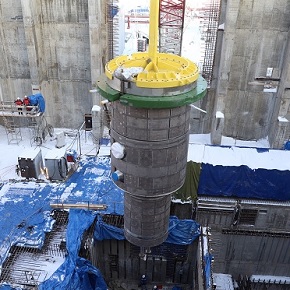 |
||
|
Pakistan and China - difficulties of cooperation AtomInfo.Ru, PUBLISHED 18.02.2023 The transfer of the second stage of the Karachi NPP to Pakistan, which took place in early February 2023, completed the current stage in the nuclear cooperation between Pakistan and China. Both countries would not want this stage to be the last. But with the next project, not everything is so simple. Exception to the rule Pakistan has not signed the NPT treaty, because otherwise it would have had to give up the nuclear weapons. The price for non-participation in the NPT is the almost complete impossibility of building nuclear power plants with imported reactors, and Pakistan does not have its own power reactors. "Almost complete" - because China is excluded from the ban. The Chinese nuclear workers managed to conclude an agreement with their Pakistani colleagues on the construction of a nuclear power plant just before China joined the Nuclear Suppliers Group (NSG), an international organization regulating relations with non-signatories to the NPT. The restrictions imposed by the NSG are not retroactive. Accordingly, China can build nuclear power plants in Pakistan without violating the group's rules, while all other countries cannot do this.
The Chinese corporation CNNC has made full use of the exclusive opportunities opened up to it in Pakistan, in the period from 2000 to 2022, having launched six power units in this country. Four units with CNP-300 reactors are operating at the Chashma NPP and two units with Hualong One reactors are operating at the Karachi NPP. In November 2017, CNNC and the Atomic Energy Commission of Pakistan signed an agreement on the construction of unit No. 5 of the Chashma NPP, on which the Hualong One should also be installed, but it has not yet been possible to start implementing the agreement. Financial obstacles The Prime Minister of Pakistan Shahbaz Sharif recalled the difficult fate of the Chashma-5 construction project in his speech at a ceremony organized in honor of the transfer of the second stage of the Karachi NPP. As befits a high-ranking official, he blamed the previous government for delays in the execution of the project, mentioning some "self-created obstacles". Against the background of the high cost of imported energy, Pakistan is in dire need of its own capacities producing cheap electricity, so a new unit must be built. The Prime Minister made it clear that the Pakistani side is ready to discuss the Chashma-5 construction project with the Chinese reactor, but will firmly insist on its terms. "And if you can really agree on pricing formulas and important terms and conditions, I think we can certainly sign a letter of intent tomorrow, which would lead to an agreement in weeks and months," Sharif said, speaking at the handover ceremony of the second stage of the Karachi NPP in early February and addressing to the Chinese delegation present. "So, the ball is now in your court. And if you agree on a price of $2 million per megawatt, we can sign an agreement right now," the Prime Minister added. The electric capacity of the Karachi-2/3 units is 1100 MWe gross, and the Zhangzhou-1/2 units with Hualong Ones under construction in China are 1212 MWe gross. Thus, the Pakistani Prime Minister hinted that he would like to get a new unit at an ultra-cheap price of $2.2-2.4 billion. The modest silence of the Chinese nuclear scientists, in turn, makes it clear that they are not too happy with the price offered. In addition, no matter what price the parties agree on for the new unit, the money will still be allocated by China in the form of a loan. And here another obstacle was formed. Under pressure from the IMF, the Ministry of Finance of Pakistan refuses to provide the sovereign guarantees for future loans - a mechanism worked out during the construction of Karachi-2/3. Other news: Decision to terminate contract for construction of Hanhikivi-1 NPP unlawful Dispute Review Board confirmed that Fennovoima Oy had unlawfully terminated the EPC contract for the construction of Hanhikivi-1 NPP. AtomExpo-2022: electric propulsion as a new paradigm Private business is quite capable of doing light things, and a state-owned company should take on complex redevelopments. 423 nuclear units are operating in the world, 57 units are under construction In 2022, construction started for 7 units, 4 with Chinese reactors and 3 with Russian ones. |
Hero of the day 
ROSATOM installs vessel of MBIR research reactor in design position On January 18, the vessel of the world's largest multipurpose fast neutron research reactor (MBIR) was installed in its designed position at the Research Institute of Atomic Reactors (RIAR) construction site in the city of Dimitrovgrad in Russia's Ulyanovsk region. RIAR is a part of ROSATOM's scientific division "Science and Innovation, JSC". INTERVIEW
AtomInfo.Ru OPINION
Rosatom |

